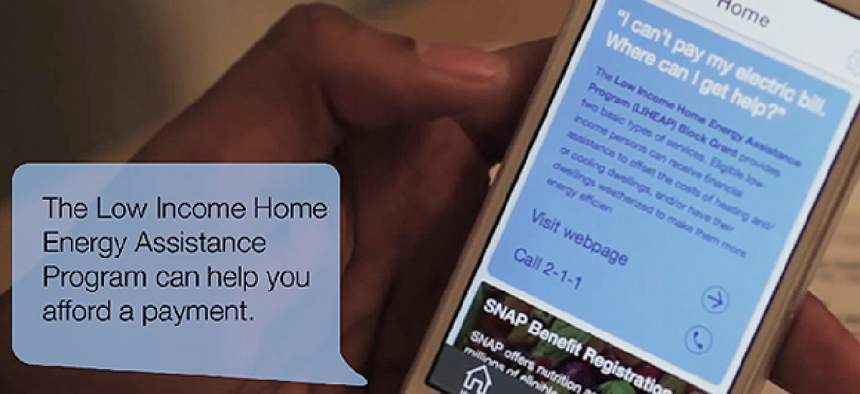Can Watson make government apps smarter?

A team of students at the University of Texas at Austin won $100,000 in startup funds for their work on a mobile app that helps users access Medicaid and other public services.
Government mobile apps are undergoing a gradual transformation from being used mainly to deliver answers for frequently asked questions to becoming dynamic customer service power tools. Now they might also be on the verge of getting much, much smarter.
Recently, a team of students at the University of Texas at Austin won $100,000 in startup funds for their work on a mobile app that helps users access Medicaid and other public services.
The team took first place in the Watson University Competition, whose goal is to fund apps that use Watson’s natural language-oriented question-and-answer technology to improve the ability of people to find information about local health and human services.
IBM gave students access to a Watson developer shell and training on how to work with the cognitive system.
“You don’t program Watson, you teach it,” said Lauri Saft, director of the IBM Watson Ecosystem. “We gave them the empty shell of Watson and said, ‘Go and come up with ideas you feel would be valuable.’”
The winning students injected publicly available information into Watson, including advice on finding social services in Texas, the location of food pantries and the availability of temporary housing. The result is an app named CallScout.
“We spent a lot of time figuring out what the call center actually wanted, what features they thought they needed and designing it in a way that would be easier for their users,” said Bri Connelly, leader of the winning team and now part of a commercial venture seeking to launch the app under the name Cerebri. “We tried to be really intuitive because a lot of these people are not engineers like us.”
The CallScout application stood out for the judging team because “it was a novel application for social services,” Saft said. “Even though we had hundreds of applications from different kinds of industries, we had never seen anything quite like this.”
The team got high marks for the app’s “ease of use and how simple and consumable it is,” Saft said. “There was such power in that. Technologists sometimes over-engineer these things, but they had kept it so clean and so simple with the end-user client or citizen in mind. It came together really nicely.”
Connelly said Cerebri will launch in July in the central Texas region, where the team hopes to generate interest from 211 call centers. The developers also plan to expand into other areas and are building prototype applications for assistance with health care, Medicaid and Medicare, and tax issues “to see where our best fit is,” she said.





